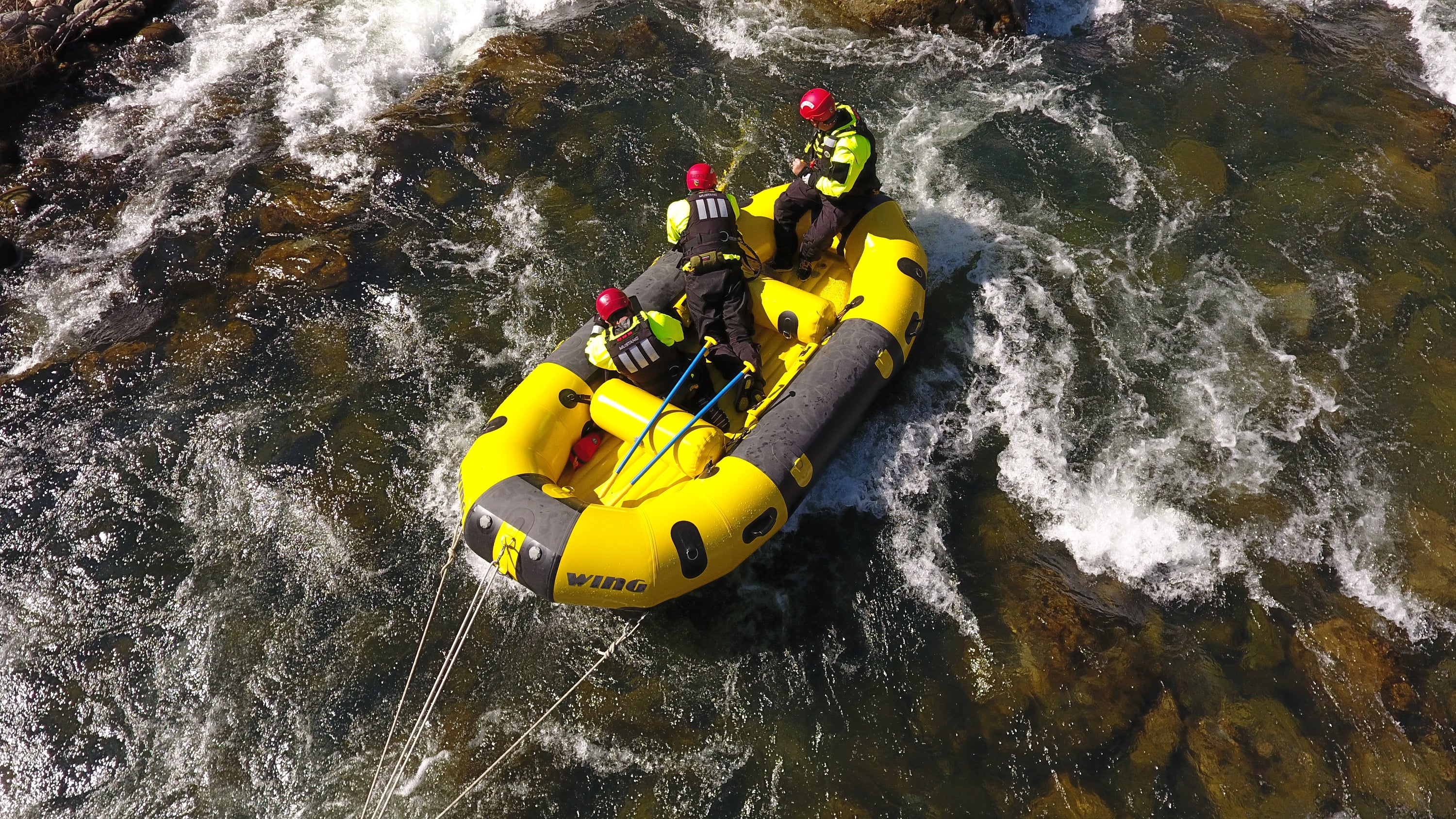
Mustang Survival and CAL FIRE discuss five disaster response strategies
Over the last nearly seven decades, CAL FIRE—tasked initially with protecting wildlands—has delved into the world of rescue work while expanding to protect large cities and counties. The organization has an incredibly diverse mission and employs over 11,000 people statewide in California; 4000 people can be assigned to one wildland fire. Recognized as leaders in incident management and disaster recovery, their teams have been involved in every major disaster in California and have travelled to other states needing help.
Division Chief Sean Norman discusses the dynamic nature of this work and what it means to be on a team that doesn't have the option to quit or fail in the face of catastrophe.
Nothing bonds a team like misery.
The teams train monthly from November to May, with a one-week drill each year. This year's theme was 'normalizing the difficult.' "I wanted to make the hard things routine," says Norman. "Doing that reduces the fear response when hard things come up, and you normalize the behaviour of working together to accomplish challenging situations."
Norman tries to have the training mimic current issues in the country. "If we go to a lot of vehicles in the water, we will put a car in the river and train on it," he says.
Misery, as a shared experience, bonds the team as they learn to adapt to discomfort. This year they had freezing temperatures each day with rain and snow as they trained. "We didn't change anything planned for the week; the team understands we will all get through it together."

It's about making order out of chaos.
"I have always wanted to be a firefighter," says Norman. "[When I was younger,] it was about the excitement and adrenaline." Now, he says, it's about making order out of chaos. "I like watching our teams engage and turn things back toward being normal. I remind people there is no super fire department that is called if we fail, so we have to succeed and not give up."
Success is hard to define.
When so much is out of their control, Norman says that success is not always definable. "Short-term, with small-scale incidents, it can be easy to find success or at least a termination point. On larger scale incidents, it is a marathon, and often you must be patient to get some wins."
They sometimes have to accept that with large and dynamic incidents, their success may just be minimizing the negative impacts and getting people out of the way.

Being flexible is essential.
"California is dynamic, and our state's fire service must be the same," says Norman. "Last year on the Mckinney Fire in Northern California, a massive thunderstorm formed over the fire, and the outflow winds blew out a part of the line. The fire got into the crowns and ran everyone out of the area. On the opposite side of the fire, torrential rain fell and caused a flash flood that trapped a bunch of people and swept a truck off the road. Within 5 miles, you had firefighters fighting a crowning timber fire and conducting swift water rescues. That is just our state."

There's no quitting or failing.
The team adheres to a strict process to stay on track and ensure their deliverables are met to keep the incident moving forward. As a Type 1 team, they cannot fail or quit, no matter how bad things get.
"There have been fires where we keep losing ground, but we must keep the army marching forward," says Norman. "Our Incident Management Teams are amazing; when I retire, I will miss that part of my career most. We can do extraordinary things, and [we] have been asked to mitigate a lot of crazy things. I have been deployed to fires, floods, mudslides, pandemics, vaccination sites and outbreaks of diseases in agriculture. It has been a crazy ride for sure."
Author: Danielle Baker
Images courtesy of: CAL-FIRE
___
Protect Your Crew
Are you a volunteer or a full-time first responder? Do you have a team you’d like to procure rescue gear for? Get in touch with our team here at Mustang Survival to outfit your crew.
Contact: mustanggovt@mustangsurvival.com // 1-800-526-0532
SEE PUBLIC SAFETY GEAR